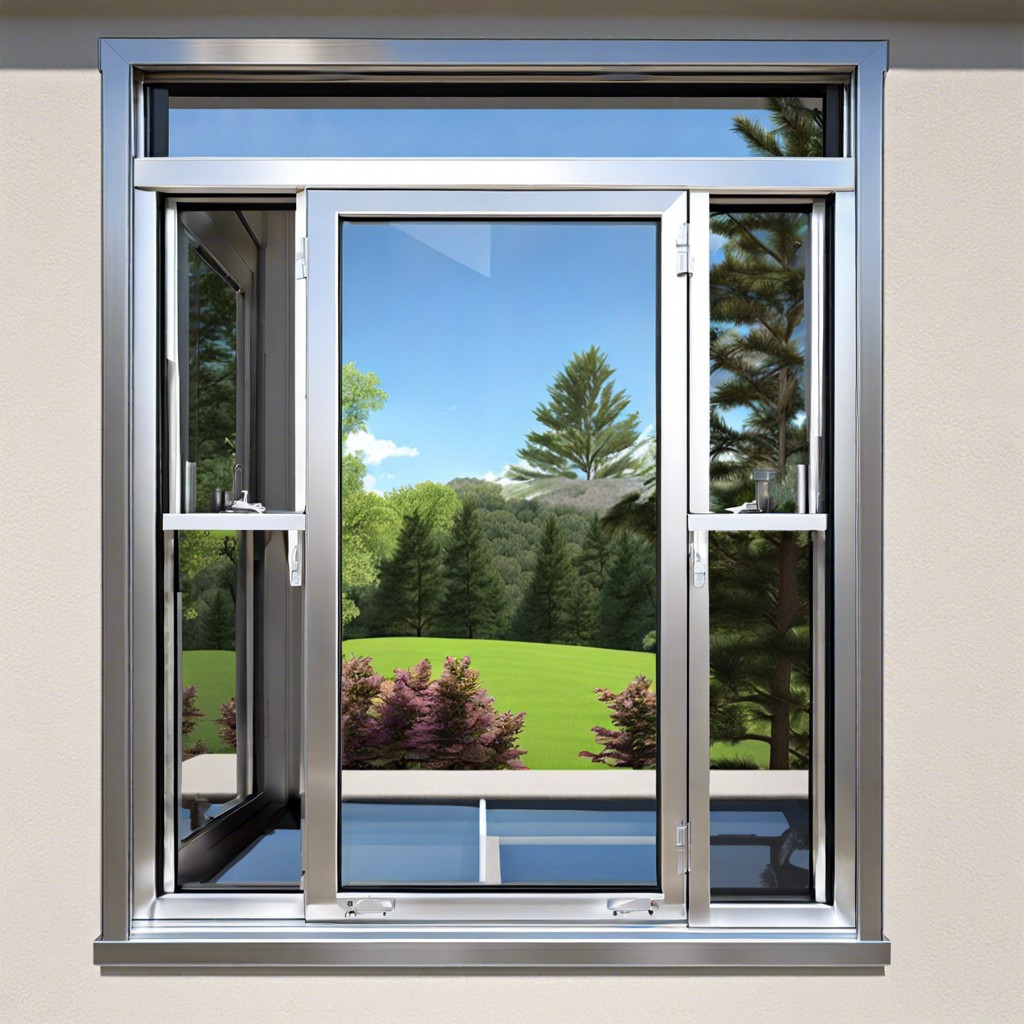Discover the pros and cons of sleeping with your window open, as we dive into its impact on your health, sleep quality, and overall well-being.
Have you ever wondered whether it’s good or bad to sleep with your window open? It’s a question that many people have asked themselves at some point. Some swear by the fresh air and cool breeze that comes through an open window, while others worry about the potential dangers of leaving their windows unlocked.
In this blog post, we’ll take a closer look at the pros and cons of sleeping with your window open, so you can make an informed decision about what works best for you. So grab a cup of tea, sit back and read on to find out more!
Key takeaways:
- Fresh air improves sleep quality, temperature, and air circulation.
- Allergens and noise pollution can be drawbacks of sleeping with an open window.
- Proper ventilation and air quality are important for overall health.
- Safety concerns include intruders and falling out of a window.
- Consider alternatives like air purifiers or fans to improve sleep without opening the window.
Pros and Cons of Sleeping With Window Open

Sleeping with your window open has its advantages and disadvantages. On the one hand, fresh air can help you sleep better by regulating temperature, reducing humidity levels, and improving air quality.
It also provides a natural source of white noise that can mask other sounds in your environment.
On the other hand, sleeping with an open window may expose you to outdoor allergens such as pollen or dust mites that could trigger allergies or asthma symptoms. If you live in a noisy area like near a busy street or construction site opening windows at night might not be ideal for sound sleep.
Another potential downside is safety concerns; leaving windows unlocked while sleeping could make it easier for intruders to enter your home unnoticed.
Ultimately whether to keep the window open during bedtime depends on personal preference and circumstances such as location (urban vs rural), season (summer vs winter), weather conditions (rainy vs dry) among others factors.
Health Benefits of Fresh Air During Sleep

It’s no secret that the quality of the air we breathe has a direct effect on our overall well-being, and this is especially true when it comes to sleep. Fresh air helps to increase oxygen levels in the body, which can lead to better blood circulation and improved brain function.
Breathing in clean outdoor air during sleep may help reduce symptoms associated with allergies or asthma by reducing exposure to indoor allergens such as dust mites or pet dander. This is particularly beneficial for those who suffer from respiratory issues.
Moreover, studies have shown that people who live near green spaces tend to report better mental health than those living in urban areas with less access to nature. Sleeping with an open window allows you not only access but also exposure (in case you don’t want/can’t go outside) to natural sounds like birds chirping or leaves rustling – all of which contribute positively towards relaxation and stress reduction.
Impact of Temperature On Sleep Quality

According to studies, the ideal temperature for sleeping is between 60 and 67 degrees Fahrenheit (15.5-19.4 Celsius). When it’s too hot or too cold, it can be difficult to fall asleep and stay asleep throughout the night.
If you’re sleeping with an open window, you need to consider how this affects the temperature in your room. During summer months when temperatures are high, opening a window at night may help cool down your room and improve sleep quality by providing fresh air circulation.
However, during winter months when temperatures drop significantly low outside; leaving windows open could make things worse as cold drafts will enter into our rooms making us feel uncomfortable while we try to get some restful shut-eye.
Air Quality and Ventilation

Poor air quality can lead to a range of health problems, including respiratory issues, allergies, and headaches. On the other hand, good ventilation can help improve indoor air quality by removing pollutants and circulating fresh air throughout the room.
When you sleep with your window open, you allow outdoor air into your bedroom which helps in improving indoor ventilation. This is especially important if you live in an area where pollution levels are high or if there’s poor circulation within your home.
However, it’s worth noting that opening windows may not always be enough for proper airflow during sleeping hours as some homes have inadequate natural cross-ventilation due to their design structure. In such cases using fans or installing mechanical ventilators could be helpful alternatives.
Outdoor Vs. Indoor Air Quality

Outdoor air is generally fresher and cleaner than indoor air because it’s constantly being circulated by natural airflow. However, outdoor pollutants such as pollen, dust, and smog can also make their way into your bedroom through an open window.
On the other hand, indoor air can be more stagnant due to poor ventilation or lack of fresh airflow. This can lead to a buildup of allergens like pet dander or mold spores that may trigger allergies or asthma symptoms during sleep.
To ensure good indoor air quality while sleeping with windows open at night:.
- Use high-quality filters in your HVAC system
- Keep windows closed during peak pollution hours
- Regularly clean bedding and vacuum carpets
- Install an effective ventilation system
Health Effects of Stagnant Air

When the air is stagnant, it can become filled with pollutants and allergens that irritate your respiratory system and cause breathing difficulties. This is particularly problematic for people who suffer from allergies or asthma.
In addition to respiratory issues, stagnant air can also lead to headaches, fatigue, and a general feeling of malaise. This is because when there’s no fresh airflow circulating through the room while you sleep; carbon dioxide levels increase as we exhale which makes us feel drowsy.
Effect of Airflow On Sleep
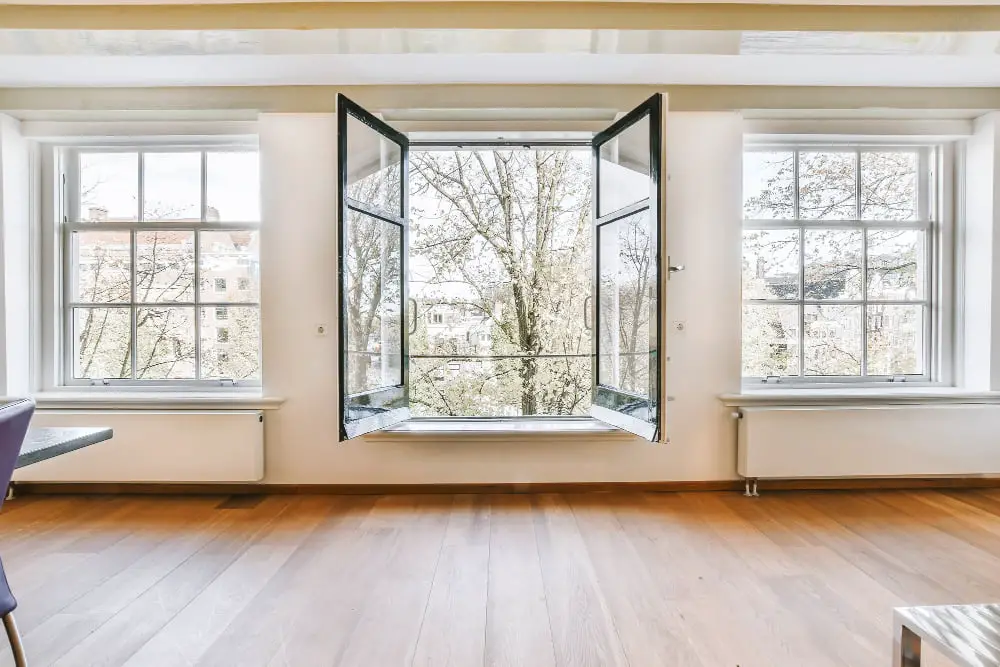
Proper ventilation can help regulate the temperature and humidity levels in your bedroom, which can have a significant impact on the quality of your sleep. When you leave your window open, fresh air flows into the room and circulates around you as you rest.
This helps reduce stuffiness and prevents carbon dioxide buildup that may cause headaches or drowsiness upon waking up.
However, it’s important to note that too much airflow can also be detrimental to good quality sleep. A strong draft from an open window may cause discomfort by drying out nasal passages or causing muscle tension due to cold air exposure during winter months.
Drafts, Humidity, and Airflow
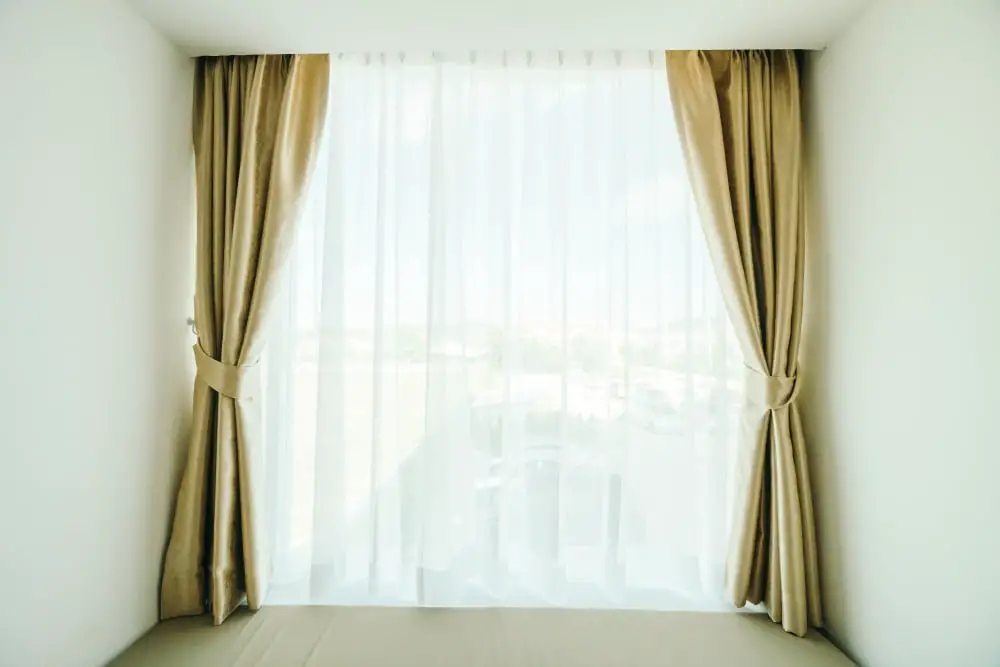
One of these is the risk of drafts that can cause discomfort or even illness. Drafts occur when cold air enters through an open window and mixes with warm indoor air.
This creates a flow of cool air that can make you feel chilly during sleep.
Another factor to consider is humidity levels in your bedroom. If you live in a humid climate or have poor ventilation, leaving your window open at night may increase moisture levels inside the room which could lead to mold growth on walls or furniture.
To avoid drafts while still enjoying fresh airflow from an open window during sleep time, try adjusting other factors such as bedding layers (adding more blankets) or using curtains/blinds to block out any direct wind coming into the room.
Impact On Sleep Apnea and Snoring

Sleep apnea is a condition where breathing repeatedly stops and starts during sleep, while snoring is caused by vibrations in the airway due to partial blockage. Both conditions can be worsened by cold or dry air entering through an open window.
If you suffer from either of these conditions, it’s important to consult your doctor before deciding whether or not to sleep with your window open. They may recommend using a humidifier or other devices that help regulate airflow and temperature in your bedroom.
In some cases, sleeping with the window closed may actually improve symptoms of sleep apnea and snoring as it reduces exposure to allergens such as pollen which could trigger inflammation in nasal passages leading to congestion.
Noise Pollution and Sleep Disturbance

While the sound of crickets and birds chirping can be soothing, other noises such as traffic, sirens or loud music can disrupt your sleep and cause you to wake up feeling tired. Studies have shown that exposure to noise during sleep can lead to increased levels of stress hormones in the body, which may contribute to health problems over time.
If you live in an area with high levels of noise pollution or are sensitive to sounds while sleeping, there are several strategies you can use. One option is investing in earplugs designed specifically for sleeping; these will help block out unwanted sounds without causing discomfort.
Another strategy is using white noise machines or apps that produce calming background sounds like ocean waves or raindrops. These types of ambient noises create a consistent sound environment that helps mask disruptive outside noises.
If possible try moving your bed away from windows facing busy streets or noisy areas within your home/apartment building.
Sleeping With Window Open in Urban Vs Rural Areas

If you reside in a rural area, the air quality may be better than that of an urban environment. In contrast, if you live in a city or town, there may be more pollutants and noise pollution that could affect your sleep quality.
In urban areas, traffic noise can be particularly disruptive for light sleepers who are easily awakened by loud sounds. Outdoor lighting from street lamps and buildings can make it difficult for some people to fall asleep at night.
On the other hand, those living in rural areas might enjoy fresher air during the night as there is less pollution compared to cities which have higher levels of smog due to industrial activities and vehicular emissions.
Regardless of where you live though – opening windows while sleeping has its benefits such as improving indoor ventilation which helps reduce carbon dioxide levels inside homes leading up-to 30% improvement on cognitive function according studies conducted by Harvard University researchers.
Allergens and Sleeping With Window Open

While fresh air can help reduce indoor allergens, it can also introduce outdoor allergens into your bedroom. Pollen, dust mites and other airborne particles are common triggers for allergy sufferers and leaving a window open at night could expose you to these irritants.
To minimize exposure to outdoor allergens while still enjoying the benefits of fresh air during sleep time, consider using an air purifier or investing in high-quality filters for your HVAC system. Regularly cleaning bedding and vacuuming floors will help reduce indoor allergen levels.
It’s important to note that if you have severe allergies or asthma symptoms that worsen at night-time due to environmental factors such as pollen count or pollution levels outside – sleeping with windows closed might be necessary for optimal health outcomes.
Safety Concerns While Sleeping With an Open Window
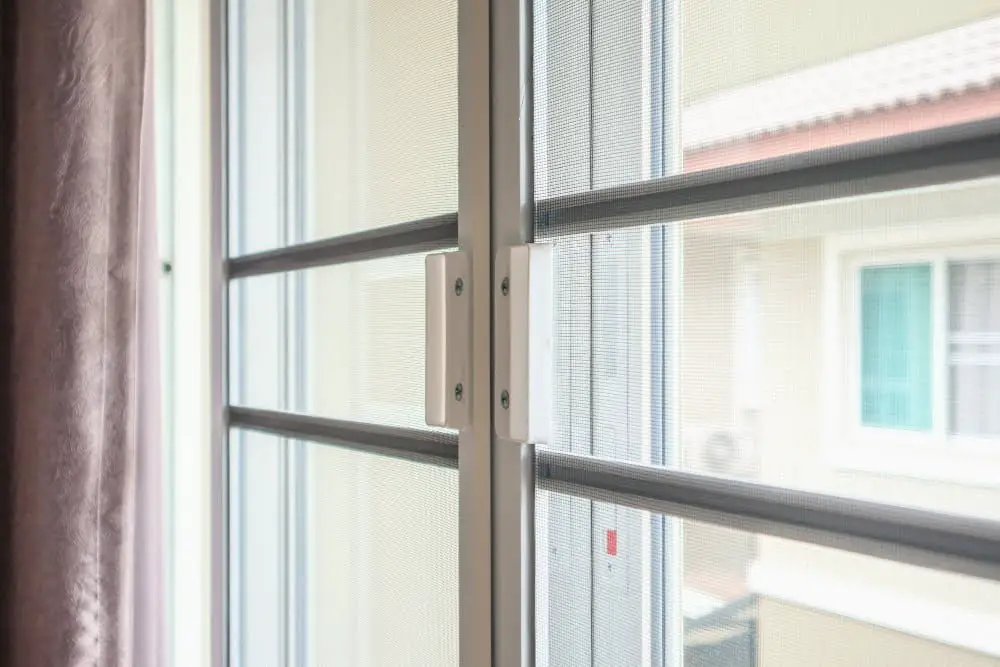
For one, an open window can make it easier for intruders or burglars to enter your home. This is especially true if you live on the ground floor or in an area where crime rates are high.
Another concern is the risk of falling out of a window while asleep. This is particularly dangerous for children who may not understand the dangers associated with leaning out of windows or climbing onto ledges.
To mitigate these risks, there are several steps you can take when sleeping with your windows open:.
- ) Install sturdy locks and security bars on all accessible windows.
- ) Keep furniture away from windows so that children cannot climb up and lean out.
- ) Consider using screens as an additional barrier against insects and other pests.
- ) If possible, choose upper-floor bedrooms instead of ground-level ones.
Privacy and Sleeping With Window Open
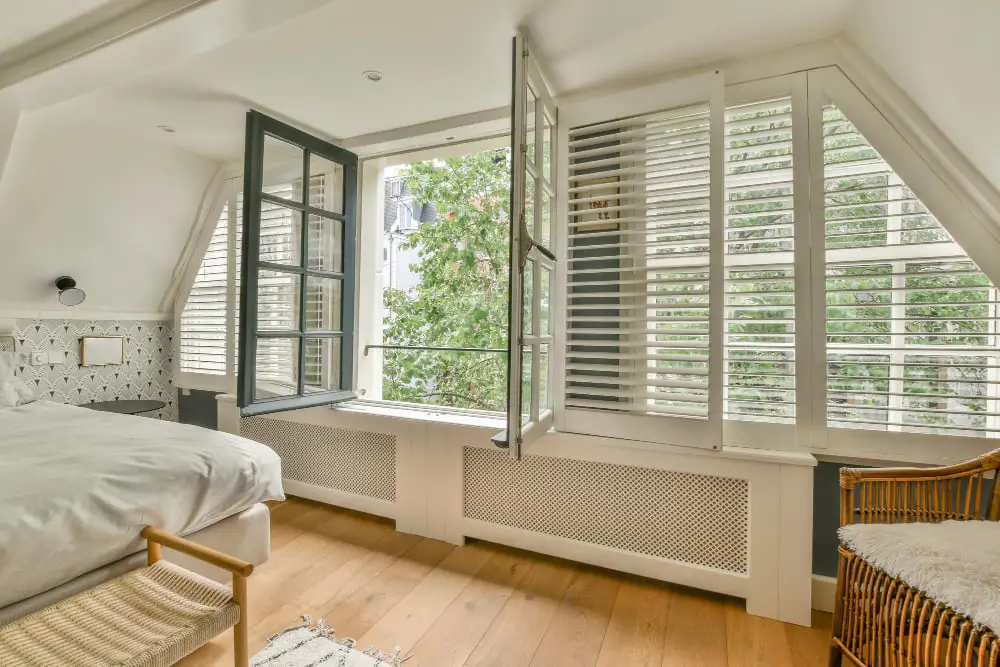
If you live in an urban area or near a busy street, leaving your window open can make you feel exposed and vulnerable. However, there are ways to mitigate this risk while still enjoying the benefits of fresh air during sleep.
One option is to install window screens that allow air flow but prevent insects and other unwanted visitors from entering your bedroom. Another solution could be using curtains or blinds that provide privacy without blocking airflow entirely.
If privacy concerns persist despite these measures, consider investing in a white noise machine or earplugs as they can help mask outside noises while keeping the window open for ventilation.
Ultimately, whether you choose to sleep with your window open depends on personal preference and comfort level regarding safety concerns.
Strategies for Improving Sleep Without Opening the Window

One strategy is to invest in an air purifier that can filter out pollutants and allergens from the air. Another option is to use a dehumidifier or humidifier, depending on the climate where you live.
You can also try using natural scents like lavender or eucalyptus essential oils that have been shown to promote relaxation and better sleep quality. Keeping indoor plants such as snake plant (Sansevieria trifasciata) or spider plant (Chlorophytum comosum) can help remove toxins from indoor air.
Make sure your bedding materials are clean and free of dust mites by washing them regularly at high temperatures. You may also want to consider investing in hypoallergenic pillows and mattress covers if allergies are a concern for you.
Alternatives to Improve Air Circulation

One option is to use a fan or an air purifier. These devices can help circulate the air and remove pollutants from the room, which can lead to better sleep quality.
Another alternative is to invest in a good HVAC system that provides proper ventilation throughout your home. This will ensure that fresh outdoor air is constantly circulating inside while filtering out any harmful particles.
You could also consider using natural methods such as plants or essential oils that have been shown to improve indoor air quality and promote relaxation during sleep.
Ultimately, it’s important for you to find what works best for you when it comes down improving airflow in your bedroom.
Tips for Sleeping With Window Open Safely

First and foremost, make sure that your window is secure and cannot be easily opened from the outside. If you live on the ground floor or have easy access to your windows from outside, consider installing locks or security bars for added protection.
Another important consideration is noise pollution. While fresh air can be beneficial for sleep quality, loud noises such as traffic or construction work can disrupt it.
To minimize noise disturbance while sleeping with an open window, try using earplugs or investing in a white noise machine.
It’s also essential to maintain good indoor air quality by regularly cleaning and dusting surfaces around your bedroom area. This will help reduce allergens like pollen and pet dander that may enter through an open window.
Sleeping With Window Open: Expert Opinions
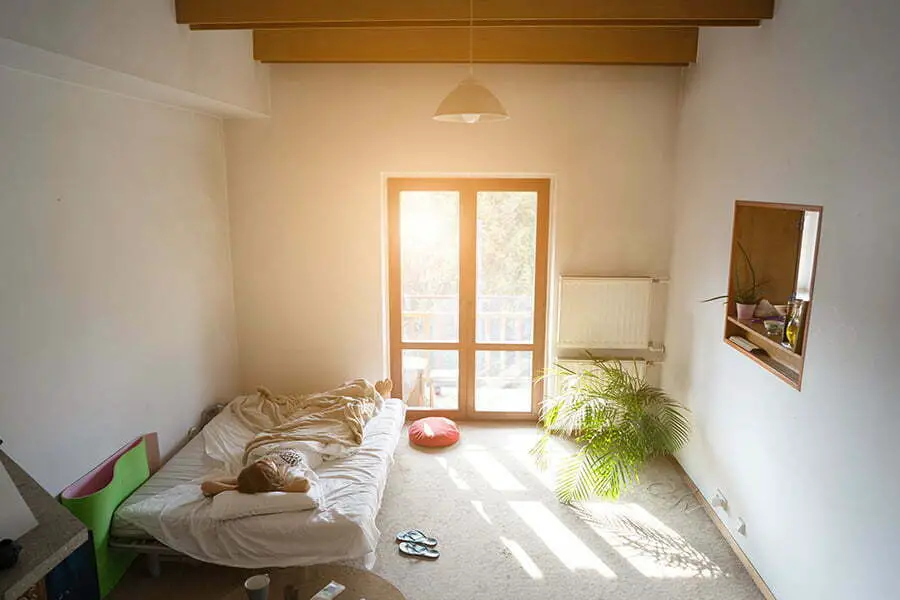
Some experts believe that it’s beneficial to sleep with an open window, while others advise against it. According to Dr.
Neil Kline, a sleep physician and representative of the American Sleep Association, “Sleeping in a room with fresh air can improve your quality of sleep by reducing carbon dioxide levels and increasing oxygen levels.” He also suggests that opening windows can help regulate temperature and humidity levels in your bedroom.
On the other hand, some experts warn about potential safety concerns associated with leaving windows unlocked at night or sleeping near an open window during extreme weather conditions such as storms or high winds.
It’s important to note that expert opinions may vary depending on factors such as climate zone (e.g., hot vs cold), location (urban vs rural), personal preferences for noise level or airflow direction among others.
Ultimately whether you choose to keep your bedroom window closed or cracked is up to you but understanding both sides of this debate will help make informed decisions about what works best for you based on individual needs/preferences without compromising health/safety concerns.
FAQ
Is it good to sleep with windows open?
Yes, sleeping with windows open is good as it reduces the concentration of carbon dioxide, volatile organic compounds, and some particulate matter, leading to better sleep.
Should I sleep with the window open if I have a cold?
Sleeping with the window open can help you breathe better if the air is not too dry, but be cautious of fans as they can dry the air, despite providing soothing white noise.
Is it healthy to sleep with window closed?
Sleeping with the window open is healthier as it prevents Carbon Dioxide build-up and ensures a continuous supply of fresh oxygen.
Can sleeping with the window open cause a cough?
Yes, sleeping with the window open can cause a cough due to outside air triggering asthma symptoms and allergic reactions to dust mites in mattresses or pillows.
How does sleeping with the window open affect indoor air quality?
Sleeping with the window open improves indoor air quality by allowing fresh air to circulate and reduce pollutants in the room.
Can sleeping with the window open impact allergies or asthma?
“Sleeping with the window open can impact allergies or asthma since it allows outdoor pollen and other allergens to enter the room.”
What are the potential safety concerns of sleeping with an open window?
Potential safety concerns of sleeping with an open window include increased risk of burglary, insect invasion, and exposure to allergens and cold weather.
Recap




